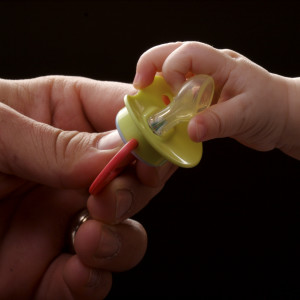If you grew up always visiting the dentist and getting treated for one dental cavity after another, then you will probably want to avoid sharing your spoon and straw at the dinner table. Tooth decay is the most common childhood disease and many parents might be surprised to realize that they could pass on their bacterium that leads to tooth decay to their infant or child. If you are a new parent or expecting then you will definitely see why it is important to have dental fillings.
What is a Dental Cavity?
A dental cavity is a hole that develops in the tooth that is infected by oral bacteria. The infection, known as dental caries (tooth decay) eats away at the tooth’s structure and flourishes into an even deeper issue when left untreated. The bacteria that cause caries are commonly found in dental plaque, and deconstruct the tooth’s structure when other germs produce acids to erode tooth enamel. The aches and pains from a dental cavity make living difficult for your child by disrupting eating habits as well as academic performance.
Passing on Cavities
Multiple studies have shown that bacterium is passed on from sharing hygiene products, pacifiers and food. According to research from the University of Louisville School of Dentistry, parents can transmit dental caries from cavities through their saliva. For example, parents who clean their baby’s pacifier with their own saliva, or tasting children’s food and using the same utensil to feed the child can permit the cavity-causing germs from adults to be passed on to the child’s mouth.
This knowledge does not mean that sharing food or utensils is always going to be an issue, but if the adult has active tooth decay in their mouth and does not practice good oral hygiene, their child is at risk of developing their own dental cavities.
Practice Good Oral Hygiene
The American Academy of Pediatric Dentistry reminds parents the importance of brushing and visiting the dentist regularly. The AAPD encourages parents to find a dental practice for their child once their first tooth emerges. Even if the parent does indeed spread bacteria to their children’s mouth, the child will not necessarily develop cavities instantly if they brush their teeth regularly.
Preparing your child early with practicing good oral hygiene can help prevent the development of cavities. Teaching your young to brush their teeth twice a day and floss can help control the harmful bacteria that accumulates on their teeth and gums. This also means that parents themselves should also model these hygiene skills early on to help their children understand the importance of oral health. As a result, this will help keep your children healthier and less susceptible to tooth decay.


